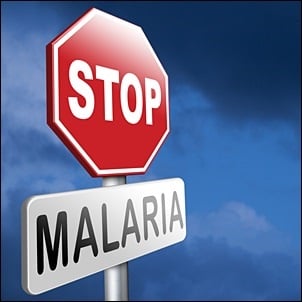
"The theme for World Malaria Day this year, 'Invest in the future, defeat malaria', reminds us that it is all of our responsibility to continue to raise awareness and share knowledge," according to Sylvester Jobic, Head of Environmental Science for Bayer in Sub-Saharan Africa.
Malaria, which is still the number one cause of hospitalisations and deaths in Africa – and far more so than HIV and tuberculosis.
To put this in perspective, according to the latest report on Malaria by the World Health Organisation (WHO), there was an estimated 198 million cases of malaria worldwide in 2013 and, up to 82% of these cases were in the WHO African Region.
Tragically, these latest statistics are in spite of significant intervention efforts by governments, non-profit organisations (NGOs) and the private sector, in their efforts to reach the targets laid out in the Millennium Development Goals for 2015, which seeks to continue reducing the impact of malaria in Africa. In addition, the economic impact of Malaria means that some countries will experience a reduction of up to 2% on their GDP, which translates into $12 billion.
So, what are we really dealing with? Well, here are some key facts that may also debunk some common myths or misconceptions about malaria for you.
Fact #1: Malaria is deadly
For the most part, this is true. However malaria doesn’t have to be deadly.
Prevention is always better than cure
In the case of malaria the two most successful methods of prevention are insecticide-treated mosquito nets and insecticides that are used to spray in-and-around houses (Indoor residual spraying). However, if you are travelling to a country or region where the threat of malaria is high, be sure to source a prescription course that will safeguard you against malaria transmission, in case of being bitten by mosquitoes on your travels.
Early treatment could save your life
With any infectious disease, there is a great likelihood that the severity of transmission and infection may be influenced by the health of the victim and other climate or environment elements. Early diagnosis and treatment can significantly improve the chances and rate of recovery.
Fact #2: Malaria isn’t unique to Africa
Although the majority of cases do occur in Africa, malaria remains a public health problem in approximately 97 countries, including Asia and Latin America, and less so in the Middle East and parts of Europe. In fact, it is estimated that half the world’s population remains at risk.
Fact #3: Malaria isn’t contagious
While a malaria epidemic may occur, if there are sudden changes in climate and other conditions (and particularly in areas where people have little or no immunity to malaria), – this only means that the conditions are favourable for increased transmissions, or that there is a higher risk of infection. Malaria cannot be spread from one person to another – not even through direct human contact. Malaria is a mosquito-borne disease that is caused by Plasmodium parasites that are transmitted to people exclusively through the bites of infected Anopheles mosquitoes.
Fact #4: You are at more risk at night
Research has shown that around the world there are about 20 different mosquito species, with all of the important species that are likely to be infected and/or carry the malaria causing parasites found to bite at night.
Fact #5: One bite could kill you!
The parasites are spread to people through the bites of infected Anopheles mosquitoes, called "malaria vectors", which bite mainly between dusk and dawn. The long lifespan and strong human-biting habit of the African vector species is the main reason why about 90% of the world's malaria deaths are in Africa.
Additionally, as in many cases, symptoms may only appear 7 to 14 days after you’ve been bitten, at which time the infection has already begun to work its way through your body. The first symptoms may be mild and could include; fever, headache, chills and vomiting, which makes it difficult to recognise as malaria. Beware, if malaria is not treated within 24-hours of the first symptoms, it can progress to severe illness. This is why prevention – or at the very least, early diagnosis and treatment – is so important.
In Africa, or more specifically, sub-Saharan Africa, the up- scaling on intervention methods has certainly had an impact, with the number of infections across Africa decreasing by 26%*, from 173 million to 128 million between 2000 and 2013. However, so much more still needs to be done. This is especially important since some insecticide chemical classes have essentially become ineffective where resistance is present. Bayer is currently working on a new chemical class insecticide for IRS, against malaria vectors, to help overcome the threat that insecticide resistance presents to Malaria control.
Unfortunately, there is no 'one-size-fits-all' solution to wipe malaria out completely, although this is a target that can be achieved overtime and with consistent treatment – with increased public private partnerships between governments, NGOs and private sectors.
Also read:
World's first malaria vaccine soon available in Africa




 Publications
Publications
 Partners
Partners











